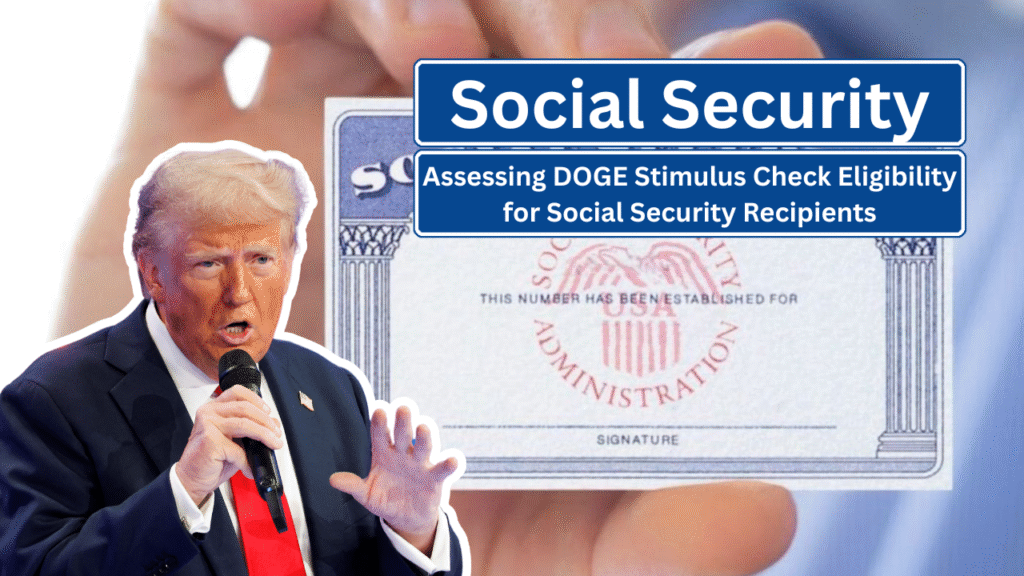In early 2025, a proposal surfaced suggesting the distribution of $5,000 “DOGE stimulus checks” to American households. The initiative, linked to the so-called Department of Government Efficiency (DOGE), has gained public attention-particularly among Social Security beneficiaries. However, serious questions remain regarding the proposal’s legitimacy, the criteria for eligibility, and how it might impact those relying on Social Security benefits.
Understanding the DOGE Stimulus Proposal

The idea of DOGE stimulus checks was introduced by James Fishback, CEO of the investment firm Azoria. Fishback proposed that 20% of the savings generated by DOGE-a temporary government agency tasked with reducing federal inefficiencies-should be returned to taxpayers through direct payments.
According to the proposal, DOGE had reportedly saved $165 billion through the elimination of wasteful spending, agency closures, and federal program cuts. The effort is informally associated with entrepreneur Elon Musk, who has been a vocal advocate for government efficiency.
Former President Donald Trump endorsed the concept, stating that if DOGE’s total savings reach $2 trillion, each eligible American household could receive a $5,000 stimulus check.
Eligibility Criteria: Who Qualifies?
Based on Fishback’s framework, the proposed stimulus would be limited to households that pay federal income taxes. Additionally, it would apply only to those who earn above a certain income threshold-although exact figures were not provided.
This means many low-income individuals, including a significant portion of Social Security beneficiaries who do not pay federal income taxes, would be excluded. However, some Social Security recipients do file tax returns and pay federal income taxes depending on their total household income. Those individuals could potentially qualify under the proposal’s guidelines.
Status of the Proposal
As of now, the DOGE stimulus remains merely a proposal without any legislative endorsement. Congress has not reviewed or passed any bills to support this plan, and several lawmakers have expressed doubt about both the feasibility of reaching the savings target and the administrative logistics of such a stimulus distribution.
Moreover, some political groups have used the proposal in campaign fundraising materials. Supporters of the plan have circulated emails suggesting potential eligibility for the stimulus check, asking for donations in exchange for updates on the initiative. This has raised concerns about the use of the proposal as a political marketing tool rather than a concrete legislative goal.
Implications for Social Security Beneficiaries
For those currently receiving Social Security benefits, the DOGE stimulus offers limited practical promise at this stage. The proposed eligibility restrictions would likely disqualify beneficiaries who do not earn enough to pay federal income taxes. And even those who do may find the process unclear, given the lack of legislative progress and specific income guidelines.
Furthermore, the broader implications of DOGE’s cost-cutting mission have sparked anxiety among Social Security advocates. The restructuring of federal programs and government staffing reductions could affect the accessibility and efficiency of services Social Security recipients depend on-such as in-person office visits, call center support, and timely benefits processing.
Conclusion
Although the concept of a $5,000 DOGE stimulus check has captured public attention, especially among Social Security recipients, it remains highly speculative. Its eligibility criteria potentially exclude the most vulnerable citizens, and without any formal action from Congress, there is little indication that the plan will materialize soon-if at all.
Social Security beneficiaries are urged to remain informed through official government channels and exercise caution in responding to unofficial communications about the DOGE stimulus, particularly those connected to political fundraising




